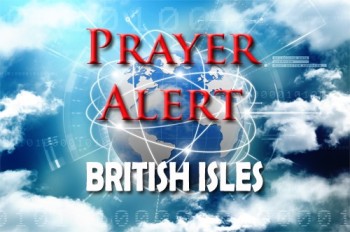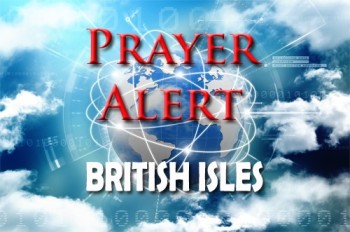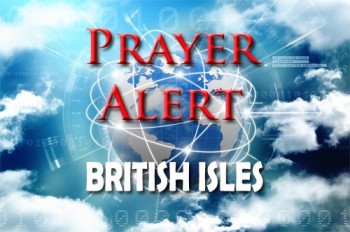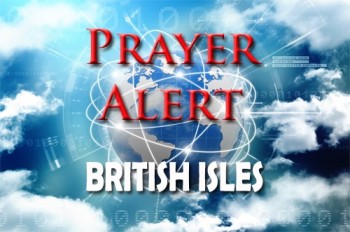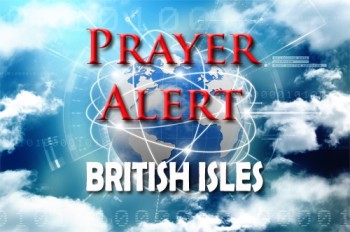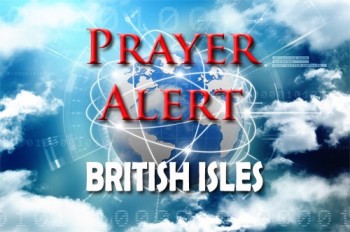Displaying items by tag: schools
Young children taking knives to school, BBC finds
A BBC investigation has revealed that even very young children are taking knives into UK schools. Police recorded cases involving a four-year-old in Kent and a six-year-old in the West Midlands carrying a flick knife and threatening another pupil. In 2024, there were 1,304 knife-related incidents in schools and sixth-form colleges across England and Wales - 10% involving primary-age children. Though total offences have slightly declined, serious attacks have increased. Some schools, especially in high-risk areas such as the West Midlands, are now installing permanent 'knife arches' and handheld detectors. The mother of 15-year-old Sheffield pupil Harvey Willgoose, who was fatally stabbed at school earlier this year, is urging the government to fund metal detectors nationwide, saying, 'Kids are going to school frightened’. Police data shows most offenders are teenage boys, often carrying blades for self-protection. Educators and youth mentors warn that fear, broken families, and lack of community support are fuelling this crisis and are calling for deeper emotional education and stronger pastoral care.
Malaysia: urgent action needed to combat school bullying
Bullying remains a pervasive and deadly problem in Malaysia’s schools, with thousands of cases recorded annually and incidents escalating to violence and even death. Despite public outrage, policy gaps and weak enforcement allow abuse to persist, including in elite institutions. Victims suffer long-term psychological harm, while perpetrators may develop behavioural problems and criminal tendencies. Research shows nearly 80% of Malaysian students have been involved in bullying, often as both victims and aggressors. Teachers, while crucial for prevention, can sometimes contribute to the problem, highlighting the need for systemic reform. Unlike many Asian neighbors, Malaysia lacks comprehensive anti-bullying laws. Experts recommend strict legislation, independent investigations, national reporting systems, whistleblower protections, school-based mental health support, educator training, and transparent accountability. Without decisive reform, tragedies like the recent death of Form One student Zara Qairina will continue to erode public trust and student safety.
Concern over app used in Bristol schools
Over 100 schools in Bristol have faced criticism for using the Think Family Education (TFE) app, which provides safeguarding leads with easy access to pupils' and their families' interactions with police, child protection, and welfare services. Staff using the app have reportedly kept it secret from parents and carers. The city council and Avon and Somerset police, who collaborated on the system, maintain that the app is meant to protect children and is not secretive, with information about its existence publicly available. Critics argue that most parents are unaware of the app's existence, and that it should be shut down to prevent the profiling and criminalisation of children. The app draws data from the Think Family database, which contains information from around 50,000 families in Bristol, collected from various agencies. It uses ‘targeted analytics’ to identify children at risk of exploitation, though critics argue it may disproportionately affect children from minority ethnic or disadvantaged backgrounds.
USA: school district may ban Bibles
Under a new Utah law that gives parents the right to challenge or report materials considered indecent, one parent wants the Bible removed from Davis School District, for its ‘pornographic’ content. If a book includes descriptions of sexual acts it must be immediately removed from school shelves. The parent sent an eight-page document to the school board stating, ‘Get this PORN out of our schools’, and quoted offensive Bible passages describing rape, incest, sex, and nudity. The district has removed 33 books from schools due to previous requests. Parents can also ask their child’s school to restrict a student from checking out certain titles. This parent wants the Bible completely removed because the Holy Book has ‘no serious value for minors’. The First Liberty Institute referred the review committee to surveys. One statistic established that 98% of English teachers said students who do not know the Bible are at a disadvantage when studying literature.
USA: after-school Satan club
Golden Hills Elementary School in California is facing backlash from parents after promoting an after-school Satan club aimed at children as young as five. The controversial club is scheduled to hold monthly meetings starting in December. It was created by the Satanic Temple - not to be confused with the Church of Satan - as an antidote to the evangelical Christian groups cropping up in public schools. The organisation’s website states, ‘The Satanic Temple does not advocate for religion in schools. However, once religion invades schools, as the Good News Clubs have, the Satanic Temple will fight to ensure that plurality and true religious liberty are respected.’ In this instance, the after-school club was created in response to the Good News Club, a weekly Christian programme for 5- to 12-year-olds at the school. Many parents believe the Satan club is a Trojan horse to promote devil worship in schools.
RE teaching losing out
Despite a 50% increase in students taking a Religious Studies GCSE, no central government funding has been spent on the subject in the last five years. During the same period, £387 million was allocated to music projects, £154 million to maths, £56 million to science, £28.5 million to English, and £16 million to languages. Also many academies fail to offer the high-quality RE provision that according to Ofsted ‘affords students the opportunity to make sense of their own place in the world’. Almost 500 secondary schools are still reporting zero hours of RE provision in year 11; 34% of academies have no timetabled RE. Teaching RE is a legal requirement for all schools. Maintained schools have a statutory duty to teach it, while academies and free schools are contractually required through the terms of their funding agreement to make provision for teaching it.
Schools struggle with staffing shortages
England’s schools are grappling with what it means to live with coronavirus. In some places, staffing shortages are so dire that retirees were urged to return to duty. Secondary schools must now test students for Covid twice a week, adding to the burdens faced by staff. One in 12 teachers was absent from school during the first week of term. Numerous schools are unable to find temporary staff to cover. Rates of teacher absence were slightly higher in primary schools than in secondaries, where face masks are now required for pupils in class. In state schools 8.9% of teaching assistants and other staff were also absent. A small but growing minority of schools are experiencing teaching staff absences of over 20%, and the Government is planning for 25% staff-absence rates. Pray for education secretary Nadhim Zahawi to have the wisdom needed as he makes contingency plans for rising staff absences impacting on schools’ ability to remain open.
Schools anti-vax protests
There have been anti-Covid vaccine protests outside 420 schools up and down the UK. The Association of School and College Leaders said it is not a fringe concern even though most protests stem from just two groups on the messaging app Telegram. One organiser has allegedly visited every secondary school in Hartlepool, and another group is coordinating multiple daily school visits from Kent to Cheshire. Protesters left Gateshead students distressed after showing them pictures of what appeared to be dead children. They target teachers with sham legal documents, and hand children leaflets with QR codes leading to extremist and conspiracy content. Some protesters think it is wrong to vaccinate children, or say the whole pandemic is a hoax. Sir Keir Starmer said it was sickening that protesters were spreading ‘dangerous misinformation’ to children, and wants exclusion zones set up around school gates.
Anti-Israeli sentiment in schools
Some schools became hotbeds of anti-Israel sentiment during the conflict between Israel and Hamas. Students staged a number of demonstrations. Angry protesters gathered outside a Leeds school to support anti-semitism when the headteacher called the Palestinian flag a ‘call to arms’. During a protest at Clapton Girls’ Academy students sat down and chanted, ‘Free Palestine’, refusing to return to lessons. They did so after teachers removed posters about the Palestinian struggle from the walls of the schools. A north London school removed images of the Palestinian flag from school noticeboards, and told parents that schools were ‘apolitical organisations’ and ‘not to use political messaging to a captive audience’. Manchester’s Loreto College closed after hearing of planned demonstrations. A Jewish teacher in a non-Jewish school was bullied by students and resigned. Twenty-five teachers from a Jewish school quit their trade union to protest against its call for participation in pro-Palestinian rallies.
Indonesia: Islamic hijab not mandatory in schools
Indonesia has banned schools from forcing girls to wear Islamic hijab headscarves after the case of a Christian pupil pressured to cover up sparked outrage in the world’s most populous Muslim nation (90% of the population follows Islam). The move was applauded by rights activists, who say non-Muslim girls have been forced for years to wear a hijab in conservative parts of the country. State schools across the archipelago of nearly 270 million people will face sanctions if they fail to comply with the edict. Nadiem Makarim, the education minister, said that religious attire was an individual choice and schools cannot make it compulsory.
